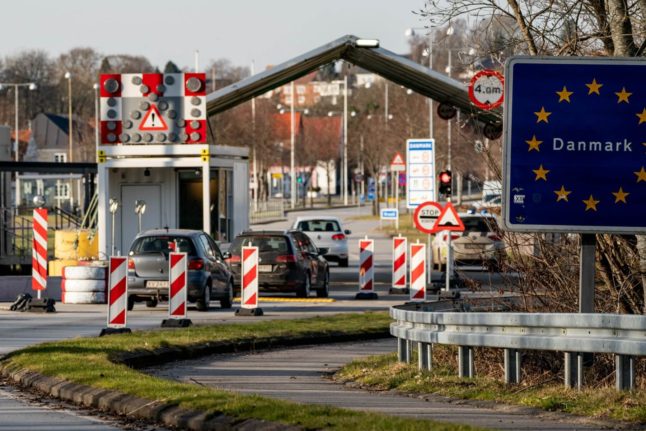The proposal to bring in new border checks has already been sent out for consultation and the government aims to impose a new law which will empowers the government to compel companies operating trains, buses and ferries entering Sweden to check their passengers’ IDs.
The new law will be valid for three years, from April 8th this year until April 2025, although the actual ID checks will only be initially required for six months, with the possibility of being extended if necessary. The government expects parliament to pass the law rapidly, so that it can come into effect next month.
“I think it would be extremely good to have this in place so we can have a better overview of who is coming in and how many,” Sweden’s immigration minister Anders Ygeman told the TT newswire.
Those under the age of 18 who are travelling with an adult who has valid ID will be exempted from the rule, as will those travelling from or via Norway.
Ygeman said that the with about twelve million Ukrainians likely to flee, Sweden is likely to receive a large number of people from the country, even potentially exceeding the peak scenario from the Migration Agency of 212,000 new arrivals .
“One should probably expect up to about 30 percent of the population, so what’s the Swedish share of that?” Ygeman said. “I hope we don’t reach that.”
“We believe that ID controls will mean that we can have a more secure method of reception,” Tomas Eneroth, Sweden’s infrastructure minister, told the Dagens Nyheter newspaper. “It means we will be able to prevent some crime which would otherwise cross the border at a time when there is a large flow of refugees.”
Sweden began enforcing ID checks on its borders in November 2015 as it sought to slow the number of asylum seekers entering into the country during the European refugee crisis, with some checks remaining in place until 2019.
Travellers were at first required to show their ID before boarding trains, buses, or ferries in Denmark, Germany, Poland, Norway, or Finland. From 2017, the checks started to be carried out by Swedish police onboard trains from Denmark. Sweden’s checks were criticised by the European Union and Schengen countries.
Eneroth acknowledged that the checks would be “a disruption” for those commuting between Sweden and Denmark over the Öresund Bridge. “I hope that the operators find a convenient solution so that it will cause as little convenience as possible,” he said.
Cross-border commuters between Denmark and Sweden greeted the announcement with dismay, with members of the Øresundspendler Facebook group saying they could hardly bear the return of controls.
But Eneroth noted that unlike many of the asylum seekers in 2015, who largely came from Syria, Afghanistan, and Eritrea, practically everyone fleeing the war in Ukraine will have a passport or other identity card, making their ID quicker and easier to check.
He said that keeping a record of all of those arriving in Sweden from Ukraine would allow the Migration Agency, and local, regional, and national governments to be better prepared, and would also help reduce the risk of human trafficking
Denmark does not currently have border checks on their side of the Øresund, but checks on the Danish-German border have led to hundreds of Ukrainian refugees being turned away from the Danish border since last Friday, DR reports.
This is due to the fact that, under Danish rules, only Ukrainian citizens with a biometric passport can enter Denmark visa-free. Children without a biometric passport are also allowed to enter if they are accompanying an adult who holds a biometric passport, and Ukrainians without a valid passport are allowed to apply for an emergency passport or asylum in Denmark.
This means that any Ukrainians looking to transit Denmark in order to seek asylum in Sweden are turned away at the Danish-German border and advised to take an alternative route to Sweden such as the ferry from Kiel in northern Germany instead, thereby bypassing Denmark.



 Please whitelist us to continue reading.
Please whitelist us to continue reading.
It appears that part of the article is in Swedish.
Thanks. That’s fixed.